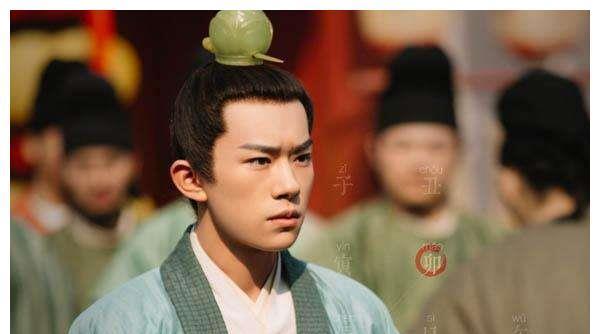Introduction: Watch "The Twelve Hours of Chang'an" and understand The Taoism of the Tang Dynasty, why can it reach its peak? Li Yuan honored Lao Tzu as his ancestor, and Tang Xuanzong pushed Taoism to the top
Adapted from Ma Boyong's novel, the film and television drama "The Twelve Hours of Chang'an" reproduces the life scenes of the Tang Dynasty, this film and television drama highlights the Tang Dynasty's policy of opening up, attracting people from all over the world to China with the mind of a hundred rivers; there is a Tang Dynasty that also adopts a relatively relaxed attitude towards religion, Buddhism reaches its peak, Buddhism is the guiding ideology of royal rule, in addition, there are many foreign religions in the play, the Jingjiao of the Persian Temple, the Yuanjiao, the Manichaeism (Mingjiao) and so on.

The author believes that "The Twelve Hours of Chang'an" is full of strong Taoist style, and the male protagonist Yi Yanqianxi's Li Bi is a Taoist who wears a hibiscus crown and holds a dust in his hand; after Li Bi appears, he first reports to his home with Zhang Xiaojing, played by Lei Jiayin, and mentions the Taoist "sage", the prototype of this "sage" is the current emperor Tang Xuanzong Li Longji; Li Bi's teacher He Zhizhang (He Zhizheng) Jing'an Division, who is also a Taoist.
In addition, the heroine female crown Yan Taizhen Yan Yuxian, whose prototype is Tang Xuanzong's favorite concubine, one of the four beauties Yang Yuhuan, Tang Xuanzong in order to get his daughter-in-law Yang Yuhuan, first wrote her as a female Taoist, Yang Yuhuan as a "Taizhen Concubine", which shows that the status of Daoists in the Tang Dynasty is respected. So, in the real history, how many Taoist temples did Chang'an City have? How is Taoism managed? Why did the Tang Dynasty respect Taoism? With the help of the topic of "The Twelve Hours of Chang'an", we will deeply interpret the Taoism of the Tang Dynasty.
please
Brief description of the development of Taoism,
Taoism is a native religion in China, but before the Tang Dynasty, there was almost no such glory as Confucianism and Buddhism, and in the Tang Dynasty, Taoism became the highest belief of the rulers and became the state religion of the Tang Dynasty, which was inseparable from the efforts of several generations of Emperors of the Tang Dynasty. Li Yuan, the founding emperor of the Tang Dynasty, followed the founder of Taoism, Lao Tzu, as his ancestor and established a policy of the Tang court to be in line with Taoism.
The Old Book of Tang records that after Li Shimin was made crown prince, "the government was simple and solemn, and the world was greatly pleased, and he also ordered hundreds of officials to be sealed in the name of the people, and prepared chen an people to govern the country." The Tang Huijiao records, "After five years of Zhenguan, the crown prince Chengqian was ill and sick, and the Daoist priest Qin Ying was healed and established as Xihuaguan." ”
From the above information, it can be seen that Li Shimin's thought of governing the country conforms to the principle of economy advocated by the Taoists; after ascending the throne, he is even more "supported by purity and tranquility", and when the prince has a disease, he gives priority to seeking help from the Taoists, which shows that Tang Taizong Li Shimin applied the ideas of Lao Tzu to the governing strategy and put Taoism above Buddhism.
Emperor Gaozong of Tang continued to promote the policy of advocating Taoism, he respected Lao Jun, raised the status of Taoist monks, and vigorously built Taoist temples; although Buddhism was promoted during the Wu Zetian period, he did not suppress Taoism; during the Tang Zhongzong period, the old system of Taoism was restored, and Taoism developed further during the Tang Ruizong period; Tang Xuanzong pushed Taoism to the peak; after the Anshi Rebellion, although the national strength of the Tang Dynasty declined, Taoism still developed.
The author believes that the main reason why Taoism reached its peak in the Tang Dynasty was the following two, first, political needs
In the early years of the establishment of the Tang Dynasty, the concept of mendi was still strong, and in order to compete with the Han Mongol clan, the Li Tang Dynasty raised the reputation and status of the Li family, deified its own rule, and honored the founder of Taoism, Lao Tzu, as the ancestor.
The Li Tang imperial family used Taoism's spell of praying for blessings and disaster relief, and used the Taoist doctrine of exhorting good and punishing evil to safeguard the feudal ethics and morality of Confucianism's "three principles and five constants"; the Li Tang royal family could also use the development of Taoism to curb the popularity and development of Buddhism and other religions, and to use the Taoist idea of quiet and inactive as a strategy for governing the country, resting with the people, and developing production.
second
The emperor needs personally
The emperors of the Tang Dynasty cultivated Taoism primarily for political needs, but they could also meet their personal needs, such as the use of Taoist immortal alchemy to achieve immortality and rule the country forever.
References: Old Book of Tang, New Book of Tang, Zizhi Tongjian, Tang Huijiao, etc